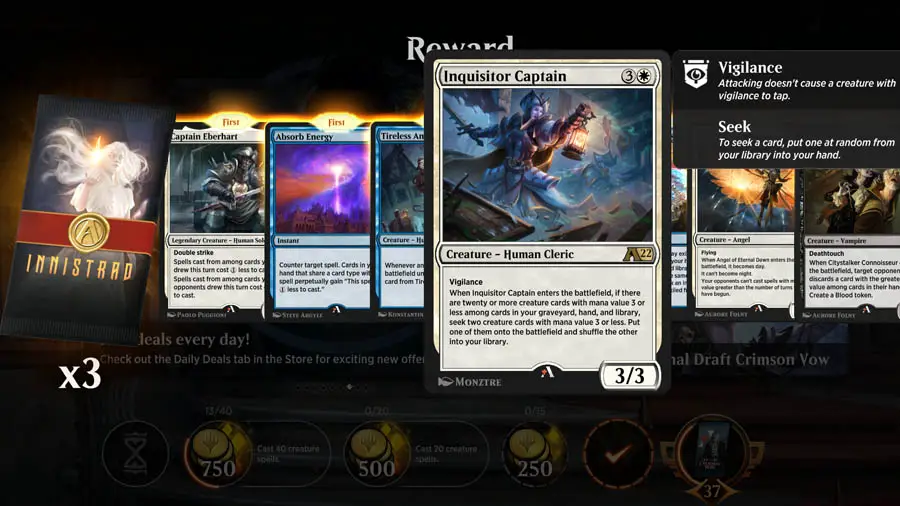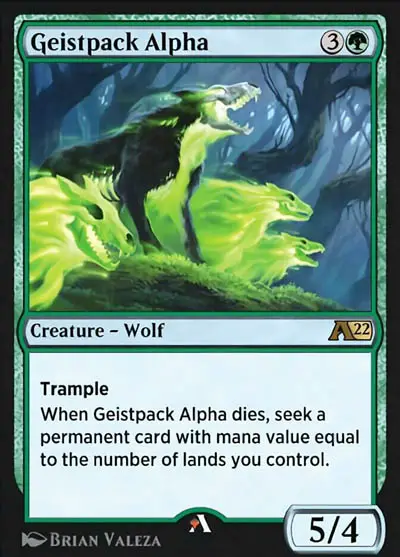Despite it being such a colossal shift in Magic’s philosophy regarding changing printed cards, Wizards of the Coast somehow managed to keep the Alchemy project under wraps till it hit us all straight in the face like a bullet train. It was introduced and launched within a span of a week, with hardly enough time to look at spoiler cards nor analyse its impact on the way players perceive and play Magic.
Let’s get right to the biggest question on our minds:
What is Alchemy?
Alchemy is an online-only format – much like Historic – on MTG Arena, but with one special caveat: it features newly designed cards, and more importantly, “rebalanced” cards. For the first time in Magic: the Gathering, cards are not banned in a format for being overpowered, but “nerfed” or powered up to ensure games are not as one-sided.

Think of Alchemy as version 1.5 of each future Standard expansion set. Alchemy sets will include digital-only cards that will not be Standard-legal, and are cleared marked with the “A” symbol in the bottom centre of the card. Here’s a small sample of the 63 new cards just released on Alchemy: Innistrad:
You might have noticed some keyword mechanics not seen much in other cards. Some were originally introduced in Historic Jumpstart, another online-only format. These mechanics have effects would require special permanent markers or proxy cards. That’s exactly why Alchemy also exists only on MTG Arena, because it’s impractical to keep track of these effects in a paper game.
Here are the special mechanics you’ll find in Alchemy/Historic but not in Standard:
Perpetually: creates a permanent effect for the rest of the match, regardless whichever zone (Battlefield, Graveyard, etc.) the card is in.
Seek: this is a “search you Library” mechanic, like Grim Tutor, except the chosen card is random.
Conjure: this effect essentially creates brand new cards. Think of them as tokens but will exist even outside of the Battlefield.
Draft (not shown): you discretely pick 1 from 3 thematically-linked cards, which are randomly selected from a fixed sideboard of 15 cards.
What are Some Popular Alchemy Decks Now?
Some cards have quickly been singled out as providing way more power than others, and thus certain archetypes are starting to appear. No doubt many of these decks take advantage of the new mechanics.
Starting off we have a mono-red dragons deck, building on the dominance of Goldspan Dragon and now the Alchemy-exclusive Fearsome Whelp. The Whelp perpetually makes all dragon cards in your hand cheaper by 1 Mana, so even if the opponent were to kill it off, all your dragons are one step closer to spreading its wings.

This would be a good time to segue into the other hot topic of Alchemy – rebalanced cards – as Goldspan Dragon is one such card that has seen its ability somewhat crippled.
Rebalanced Cards for Alchemy – Mostly Nerfs but Some Upgrades
Anyone who’s been playing Standard lately knows that Goldspan Dragon is everywhere. Not only does it have Haste, it lets your add 2 Mana for every Treasure. And top it off, you create even more Treasures every time it attacks or is targeted by a spell. So much value!
Rather than outright ban the card as Wizards have done in the past (think Oko, Thief of Crowns or Field of the Dead), they’ve decided to go the route of modern-day digital card games, where cards are continuously evaluated and rebalanced. We’ve seen games where these rebalances occur every one or two months, often on the same card because they can’t decide on what is considered just right or too strong. Will this happen in Magic too?

Original 
Alchemy rebalanced
While the “nerfs” to other popular meta cards like Alrund’s Epiphany get the most flak, it should be mentioned that some cards have also been spruced up in the hopes of seeing more play. One such card is Cosmos Elixir, which has already seen play in some mono-white lifegain decks, but now with this buff, the Scry 1 could entice more players to use it in other decks.

Original 
Alchemy rebalanced
What if Cards Redeemed Through Wildcards Gets “Rebalanced?”
Wizards isn’t so cruel as to make you recollect cards that you already have in your collection, whether it was opened in packs or exchanged through Wildcards. Similarly, if you open any new cards that also have a rebalanced version for Alchemy, you’ll own both versions and will be applied accordingly depending on what format you’re playing.
End Step
Is Alchemy here to stay? There’s a good chance it will, seeing how Historic has grown in popularity since it was launched. Both are online-only formats and will see increasing number of players adopting it as the years go by. Arena is go-to platform for new Magic players, so it’s likely some will give Historic and Alchemy a try, even if the power level is higher than Standard.
To help Magic players adjust, everyone on Arena gets 3 free Alchemy: Innistrad packs, plus several Alchemy Rares to start building new decks.

For current players, keeping track of what cards are digital only and what has been rebalanced is turning out to be more of a headache than a blessing. Our recommendation is to use your paper cards as an easy reference point on what’s ‘original.’ If you’re solely an Arena player, Scryfall can quickly show all the variants after a quick search.




